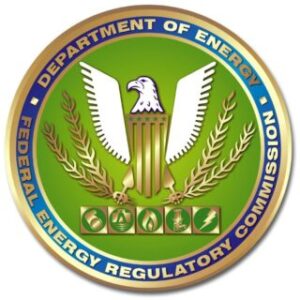
Dear Chairman LaFleur:
The Natural Gas Council, and other entities representing the natural gas value chain, submit these comments in response to the fuel assurance reports Independent System Operators and Regional Transmission Organizations filed on February 19, 2015, as directed by the Federal Energy Regulatory Commission’s November 20, 2014 Order on Technical Conferences in the above-referenced proceedings. The Order directed each ISO/RTO to file a report on the status of its efforts to address fuel assurance.
The Natural Gas Council is encouraged by the Commission’s efforts to address fuel assurance, including the importance of generator access to sufficient fuel supplies and the firmness of generator fuel arrangements – regardless of fuel type – in order to ensure electric reliability. The Commission identified issues regarding “whether electric market incentives are adequate to ensure gas-fired generator performance or otherwise signal the need for pipeline infrastructure to meet growing needs,” as of significant concern in its November 15, 2012 Order on gas-electric coordination.1 Fuel assurance is the most important issue the Commission must address to improve gas-electric coordination and ensure reliability for both natural gas and electricity customers. This topic is not without challenges, and both industries would benefit significantly from the Commission’s continued leadership and attention on this issue. The Natural Gas Council therefore encourages the Commission to convene technical conferences to explore whether regional electric market rules adequately compensate actions to achieve fuel assurance.
As MISO appropriately recognizes in its report, “[a]n important fuel assurance consideration, particularly as new natural gas-fired generation is likely built, is the adequacy of natural gas infrastructure serving gas-fired generators.” MISO fuel assurance report at 6. In addition, ISO New England recognizes that “[w]hile [its market design changes] go a long way to providing incentives for generators to ensure that they have access to all available fuel, these efforts may not be sufficient to drive investment in new pipeline.” ISO-NE fuel assurance report at 4.
The ISO/ RTO reports illustrate that, akin to gas-electric coordination issues, concerns with fuel assurance issues are regional and arise in different ways across the country. Moreover, each ISO/RTO is in the process of addressing, or considering how to address, fuel assurance in its own manner. The Natural Gas Council does not comment here on specific programs and mechanisms that individual ISOs/RTOs have proposed, or plan to propose, to address market and system performance associated with fuel assurance or whether these programs will be effective or timely. Many proposals have not taken effect and either are before the Commission or in an ISO’s/RTO’s stakeholder process. Rather, the Natural Gas Council encourages the Commission to examine closely each ISO’s/RTO’s fuel assurance efforts to ensure that each region has in place the proper market incentives that will facilitate investment in a fuel portfolio that supports the generation and associated infrastructure needed for electric reliability, regardless of the fuel type on which the generator chooses to rely. As the Commission correctly recognizes, “[f]uel assurance is a key to ensuring generator performance, which directly contributes to the overall reliability of the grid.” Order at P 8.
As evidenced by the polar vortex of 2014, organized electric markets must ensure that generators are compensated for having the means necessary to preserve the reliability of the electric grid. Accordingly organized markets and the regulators and public officials responsible for protecting consumers and ensuring reliability should design markets that send clear and appropriate price signals and allow cost recovery to ensure the fuel delivery investment — be it pipeline infrastructure, dual fuel, storage, or other measures — needed to meet performance obligations.
Additionally, the Commission should require improved tracking and monitoring from RTOs/ISOs as to the causes of generator unavailability due to fuel in order to provide a basis for each region’s decision about how to craft solutions that will improve fuel assurance. This is an appropriate time for the Commission to examine these important fuel assurance issues.







